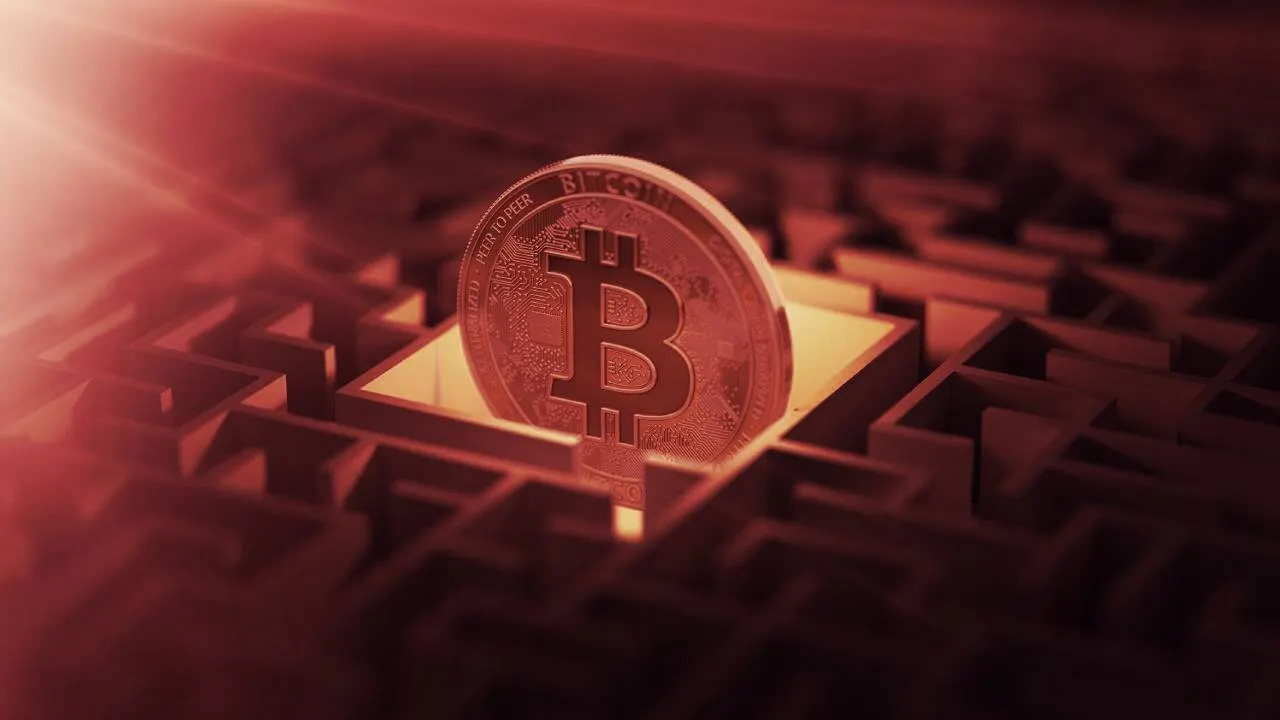In brief
- Millions of dollars worth of Bitcoin have been lost to forgotten passwords and keyphrases.
- Wallet recovery services attempt to help reunite individuals with their lost cryptocurrency.
Richard Palmer (not his real name) has—had?—about 20 Bitcoin, which as of this year's bull run, would make him a millionaire.
“In the early 2010s, I was one of those geeks excited to buy a pizza slice with Bitcoin,” he told Decrypt. “I even got my first Bitcoin for that purpose—except, by the time a pizza joint in my town started accepting Bitcoin, I’d already forgotten the damn password.”
As Bitcoin's price ebbs and flows, his feelings are ambivalent—particularly when the cryptocurrency surges to a new all-time-high. But he's not alone in his predicament—there are many Bitcoin holders who've been locked out of their wallets, unable to access their funds as their value spirals ever higher.
In fact, a whole industry of wallet recovery specialists has sprung up to cater to that glaring need—in many cases, founded by individuals who've lost a crypto password themselves, and have turned their painful experience into a full-fledged profession.
As Decrypt found out in conversations with wallet specialists and those trying to get their wallet back, it’s a psychological endeavour as much as it is a technical one.
Introspective forensics
Danny Thomas, a 37-year-old American food delivery worker, is an early Dogecoin investor. He traded on Reddit’s r/dogemarket in 2013—the prime Dogecoin exchange at the time. By early 2014, his dedicated efforts in the Dogecoin NASCAR sponsorship drive brought his crypto balance to 300,000 DOGE—worth over $16,000 today.
Around the same time, rumors of crypto-stealing malware started sweeping through the Internet; r/dogemarket rang alarm bells, and Thomas took necessary precautions.
“I set my password to something I knew I would never forget,” he told Decrypt, “which I technically didn’t—I never forgot the context of the password but never managed to get the exact formatting right.”
“Most people often have a hunch what their password might be, but they can’t quite put their finger on it,” Niels Zondervan, founder of Wallet Recovery NL, told Decrypt.
Zondervan asks his clients to try and recreate the environment in which they first set the password, so that the range of possibilities can be narrowed. “When creating a password, humans almost always use clues from their environment,” he explains. That can be a TV show character, or a postcode.
Wallet recovery can sometimes feel like one-sided speed dating. “We try to ask as many questions as possible to create a mental image of that person's world,” Robert Rhodin, CEO of wallet recovery company KeychainX, explained.
To his annoyance, Palmer can’t partake of that psychological game. He—unlike Thomas—has no frame of reference (“no, it’s not something like p1zza”, he said); his password exists in a contextual void.
How we recovered a Bitcoin wallet from 2013! https://t.co/fWpwbxRBCI #Bitcoin #cryptocurrencies #passwords #recovery
— KeychainX (@KeychainX) December 15, 2020
“It was a totally random string of characters that I knew would be unhackable, something like VBhfnyhjfLBw79!,” Palmer said. He'd jotted it down on a piece of paper that he has since lost.
“The more meticulous about security you are, the harder it is for me to help,” Dave Bitcoin (as he’s professionally known), founder of Wallet Recovery Services, told Decrypt. “If a customer suggests a wide range of apparently random possibilities, then chances are going to be much lower,” he said, giving a modest and yet unmistakably honest success rate estimate of around 35%.
“But my success rate continues to improve as my system evolves to be faster and smarter about the passwords it tests,” he said.
It is also this shared belief in technical progress that keeps Palmer (not David’s client) sanguine about his future riches.
Cutting through the distrust
The early crypto ethos that begat non-custodial wallets—where you don't trust a bank or a third party with your wallet keys—also undermined the trust necessary to seek help from others.
“The general feeling at the time was that you should never give your wallet or private keys to anyone, as no one could be trusted,” David Bitcoin explained.
To earn the business of a target clientele who is almost programmed to distrust, wallet recovery specialists had to prove themselves first.
In some cases, that involved IRL meetings—exceptionally rare for an otherwise exclusively online community. “An African man flew over to meet us in person,” Rhodin said. After having wined and dined with them, he handed over a note “with tens of different passwords containing a massive list of family members.” He’d forgotten the twenty-fifth word to a passphrase on his Trezor hardware wallet. The password did indeed end up being a family member's name—but irregularly capitalized.
It’s not just the clients who need to be trusting, however.
“After every price surge,” Zondervan told Decrypt, “there’s a multitude of people inquiring about my services.” The majority of those inquiries—about 60%—come from “shady guys from the dark web” who stole a wallet or bought a stolen wallet, hoping to leave the dirty work to recovery specialists, he explained.
Zondervan, like others in the business, has developed an eye for genuine clients. “Some clients are anxious and want immediate results, while others are more patient, understanding that it’s not a quick task,” he said, “the psychological reaction differs, but there’s always something that feels real about them.” In his experience, the psychological reaction varies by educational background and technical aptitude—not how much the wallet contains.
If all else fails
It’s not how much the wallet contains—of which they take a commission, often around 10%—that necessarily motivates wallet recovery specialists. “There are many people who have invested their life savings in cryptocurrency,” said David Bitcoin, “and in some parts of the world this may only be $500.”
David Bitcoin once worked with an Indian client who didn’t have much in his wallet, compared to some hodlers. “But opening his wallet enabled him to see his daughter because now he could afford the alimony.”
The price of failure
Despite the best efforts of recovery specialists—both psychological and technical—some wallets will remain sealed.
Last month, Rhodin had to deal with several clients who entered the wrong PIN three times on a self-destroying Ledger hardware wallet. Their Bitcoin has now been transferred to the ever-growing junkyard of 3.7 million Bitcoin—around 20% of the current Bitcoin supply—that might be lost forever, according to the most recent estimates.
But the biggest impact when someone loses access to their Bitcoin isn't necessarily the material wealth; it's something more intangible. Prudy Gourguechon, a psychoanalyst who writes for Forbes on the psychology of money, told Decrypt that while they haven't actually lost anything beyond their initial investment, “what they’ve lost is a fantasy—how wonderful life would be if they had access to those Bitcoin riches.”
“I once had a client who, for the first time in their life, experienced riding the Metro—as opposed to being chauffeured,” she said. “That person is an example of someone who lost a great deal of wealth, going from being ultra-wealthy to the middle class.”
To help put the issue into perspective, she proposed a “change-in-class test” of some sort: “Is there really a change in class for those who lost Bitcoin passwords? They’ll just keep on living the same life.”
She suggested a therapist to anyone still struggling with the loss of their fantasy after a month’s time.
But Thomas admitted he had another method of last resort in mind—that is, if he hadn’t received the good news from Rhodin two weeks ago.
“If the wallet recovery service hadn’t worked out and Dogecoin kept rising,” he said, “I would have sought a hypnotist to get my repressed memory unlocked.”

